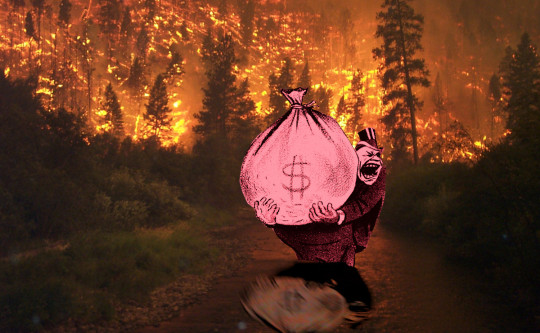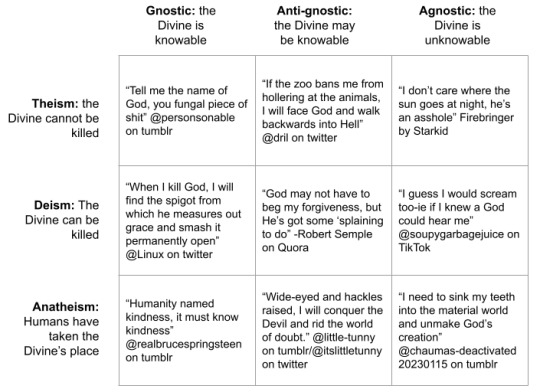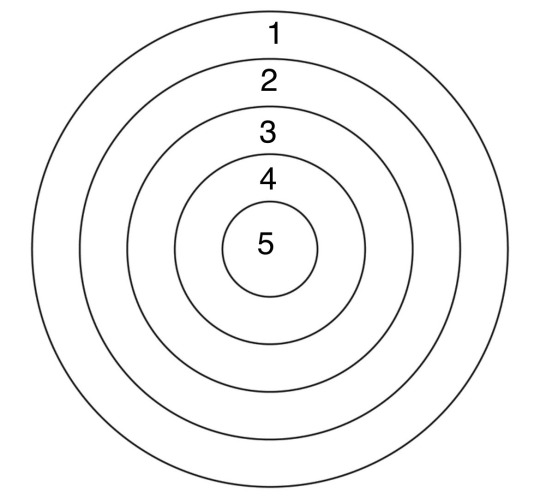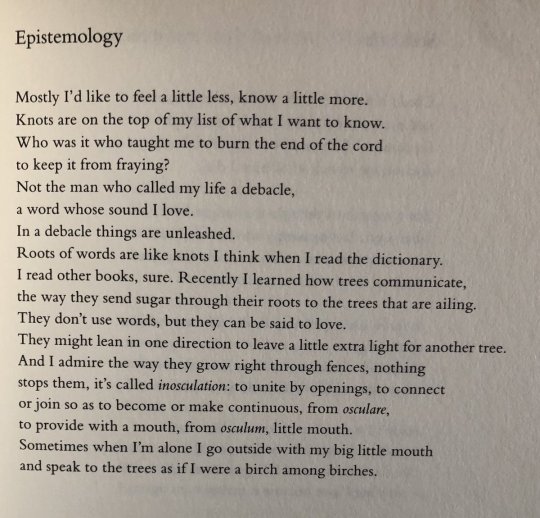#Epistemologi
Explore tagged Tumblr posts
Text
Kerangupan dan Kepaganan Epistemologi
Bermula dari Rasa Kagum
Menurut Plato, filsafat dan pengetahuan dimulai dengan rasa kagum.[1] Ungkapan lain dari itu adalah rasa heran atau mungkin rasa terkesima. Rasa kagum bukan rasa ingin tahu. Rasa kagum jauh lebih dahulu daripada rasa ingin tahu. Rasa ingin tahu lebih berarti misalnya seseorang melihat sebuah perangkat canggih lalu penasaran bagaimana perangkat tersebut bekerja. Rasa ingin tahu tidak pada semua orang ada. Ia hanya ada pada orang yang sebelumnya sudah memiliki pengetahuan yang hendak melanjutkan pengetahuannya. Rasa kagum dimiliki oleh semua orang dan biasanya terhadap hal-hal yang tampak sederhana. Rasa kagum membuat yang sederhana itu menjadi mengagumkan dan tidak sesederhana penampakannya.
Rasa kagum lalu memberikan semacam rasa tahu terhadap sesuatu. Setelah rasa tahu itulah muncul rasa ingin tahu. Jadi, rasa ingin tahu tidak terjadi karena seseorang sama sekali tidak tahu, justru karena ada pengetahuan awal yang memicu rasa ingin tahu karena tidak mungkin rasa ingin tahu muncul jika sama sekali tidak ada rasa tahu sebelumnya. Misalnya, tidak akan ada rasa ingin tahu seseorang terhadap Gunung Merapi jika tidak pernah tahu tentang Gunung Merapi, paling tidak lewat mendengarnya, melihatnya dalam gambar, dan lain-lain.
Rasa tahu adalah semacam “pengetahuan umum setiap orantg” tetang suatu hal; sedangkan rasa ingin tahu adalah menganggap diri tidak “setahu setiap orang” sehingga seakan-akan orang yang memiliki rasa ingin tahu merasa tidak mengetahui apa-apa tentang hal tersebut atau menganggap pengetahuannya selama ini tidak lengkap atau bahkan tidak benar sama sekali. Rasa kagum menggerakkan rasa ingin tahu tersebut untuk berhadapan dengan suatu hal yang di satu sisi menyembulkan diri untuk diketahui tetapi di sisi lain menyembunyikan dirinya untuk diketahui lebih lanjut.
Rasa ingin tahu bisa saja bernilai saintifik dan bisa pula filosofis. Jika bernilai saintifik, maka rasa ingin tahu merupakan usaha untuk menemukan seperangkat jawaban yang dirangkai menjadi rumusan-rumusan tertentu. Adapun jika bernilai filosofis, maka rasa ingin tahu membawa masuk kepada suatu hal sebagai kesadaran baru terhadap hal tersebut, kesadaran yang keluar dari “pengetahuan umum setiap orang” tanpa kehilangan rasa kagum terhadap hal itu. Bedanya, rasa ingin tahu saintifik menghilangkan rasa kagum dan rasa ingin tahu filosofis mempertahankan rasa kagum.
Dari Rasa Kagum ke Epistemologi
Pengetahuan tentang sesuatu terdiri dari dua hal, yaitu pengetahuan itu sendiri dan sesuatu itu sendiri. Keduanya tidak sama dan tidak terpisahkan. Sesuatu dibicarakan lewat pengetahuan terhadapnya, namun pembicaraan tidak hanya tentang sesuatu tersebut tetapi juga tentang pengetahuan tentang sesuatu itu. Pembicaraan tentang pengetahuan tentang sesuatu itulah yang disebut epistemologi.
Rasa kagum terhadap sesuatu memang melahirkan pengetahuan tentang sesuatu itu sendiri tetapi filsafat tidak hanya berbicara tentang sesuatu itu sendiri tetapi juga tentang pengetahuan terhadap pengetahuan terhadap sesuatu tersebut. Dalam hal itu juga ada rasa kagum tersendiri sehingga melahirkan berbagai macam petanyaan seperti: bagaimana manusia bisa mengetahui? Bagaimana manusia bisa mempertanyakan sesuatu? Mungkinkah pengetahuan bisa disebut benar? Bagaimana jika ternyata pengetahuan tidak sama dengan kenyataan? Apakah pengetahuan bersifat universal dan absolut atau temporal dan lokalitas? Bisakah sesuatu diketahui hingga hakikatnya atau hanya sampai pada penampakannya? Apakah ada batas-batas bagi pengetahuan? Jadi, epistemologi tidak hanya memahami bagaiman sebuah pengetahuan bisa hadir tetapi juga bisa sampai kepada memferivikasi mana pengetahuan yang benar dan mana yang tidak benar hingga menghilangkan keraguan terhadap pengetahuan.
Epistemologi itu sendiri telah mengandaikan bahwa ada pengetahuan yang benar tentang sesuatu hal, meskipun juga mengandaikan ada pengetahuan yang keliru. Namun ada sebuah warna di dalam epistemologi yang lebih mengedepankan pengetahuan yang keliru daripada yang benar dan sampai kepada kesimpulan bahwa pengetahuan pastilah tidak pernah benar atau paling tidak tidak mampu sampai kepada pengetahuan yang sejati. Sebutlah itu sebagai skeptisisme.
Sebagaiman telah disebutkan sebelumnya bahwa asal dari pengetahuan rasa kagum yang berubah menjadi rasa ingin tahu. Rasa ingin tahu sesungguhnya adalah pengakuan terhadap adanya ketidaktahuan dan juga keraguan terhadap pengetahuan yang sebelumnya sudah ada atau diketahui oleh semua orang. Pada hal itu, skeptisisme memiliki tempatnya. Memang, pengetahuan selalu menempel dengan keraguan. Setiap pengetahuan memang harus dibenturkan dengan kenyataan untuk menguji validitasnya. Pengetahuan juga harus bersedia menerima kebenaran yang berbeda dengan dirinya dan mengakui jika akhirnya terbukti dia salah dan harus diganti dengan kebenaran lain.
Skeptisisme juga mengingatkan adanya keterbatasan manusia, termasuk keterbatasan pengetahuannya. Pengetahuan manusia yang senantiasa berkembang menjadi bukti bahwa pengetahuan manusia terbatas dan kerena itu, berkembang. Berkembang berarti pengetahuan manusia tidak terlepas dari konteks ruang dan waktu sehingga pengetahuan manusia sampai pada titik tertentu dan melangkah ke titik lain di waktu dan ruang yang berbeda di masa datang.
Skeptisisme mulai kehilangan tempat ketika tujuannya berakhir kepada segala sesuatu hingga kebenaran benar-benar tidak ada sehingga skeptisisme sendiri kehilangan pijakan kebenaran yang membuatnya menjadi tidak benar. Skeptisisme juga kehilangan tempat ketika meragukan segala landasan bagi berdirinya kebenaran karena itu berarti skeptisisme meragukan landasan bagi dirinya sendiri untuk menyatakan dirinya benar. Saat skeptisisme meragukan segala hal, paling tidak dia tidak sedang meragukan dirinya sendiri dan saat itulah dia tidak lagi skeptis.
Keberadaan manusia adalah keberadaan yang terbatas dan dari sanalah keraguan berasal. Keberadaan manusia hadir bersama ketiadaan. Saat manusia mengaku ada, maka saat itu pula muncul keraguan bahwa jangan-jangan dia tidak benar-benar ada dan kalaupun ada, maka mungkin ada dalam mimpi atau ada yang tidak sejati karena dikendalikan oleh kekuatan dari luar dirinya. Keberadaan manusia yang dihantui oleh ketiadaan terbukti dengan peranan kematian, waktu, perpisahan, kesepian, kegagalan, pertentangan terhadap kehendak, dosa, keputusasaan, dan lain-lain.[2] Semua itu membuat manusia seperti berada di wilayah antara ada dan tiada.
Pada wilayah antara dan tiada sebagaimana disebutkan di atas itulah pengetahuan manusia hadir. Manusia menggantungkan beradanya pada pengetahuan yang tidak pernah henti dihantui oleh ketiadaan. Karena itula, keberadaan manusia tidak pernah selesai; selalu dalam masa pembentukan yang diancam oleh kehancuran. Eksistensi manusia selalu berada di dalam pertanyaan, pertanyaan terhadap eksistensinya yang justru merupakan pertanyaan yang diajukan oleh manusia sendiri. Setiap manusia mencapai sebuah pengetahuan, maka saat itu dia menemukan dirinya, namun sejak saat itu pula, pertanyaan datang menyergap dan menggugat pengetahuan yang telah dicapai, lalu semua berantakan. Namun, pengetahuan kembali datang setelah pertanyaan dan manusia kembali memenuhi dirinya. Jadi, pemenuhan diri manusia senantiasa terjadi sebagaimana kehancurannya juga tidak pernah henti terjadi.[]
[1] P. Hardono Hadi, Epistemologi: Filsafat Pengetahuan, Yogyakarta: Kanisius, 1994, hal. 16.
[2] P. Hardono Hadi, Epistemologi: Filsafat Pengetahuan, hal. 22.

2 notes
·
View notes
Text
Even more cool search trends

8K notes
·
View notes
Text
Om vem och om vad kan jag med fog säga att jag äger kunskap? Jag kan erfara själen inom mig, och därav sluter jag att den existerar. Jag kan komma i beröring med omvärlden, och jag drar slutsatsen att också den existerar. Till detta inskränker sig allt mitt vetande, och det övriga är blott konstruktion.
Albert Camus, Myten om Sisyfos
0 notes
Text
Filsafat Epistemologi: Menjelajahi Sains dan Kebenaran Ilmiah
Dalam dunia filsafat, ada percabangan yang memainkan peran vital dalam memahami sains dan metodologi di balik pengetahuan: epistemologi. Cabang filsafat ini secara erat terkait dengan gnoseologi, yang merupakan studi tentang asal-usul, sifat, dan batasan-batasan pengetahuan. Epistemologi, sebagai subcabang gnoseologi, menjadi pusat perhatian dalam mengkaji metode dan sistem pengetahuan…

View On WordPress
0 notes
Text
Mengenalmu Itu Tak Mungkin
Kamu dan Namamu Sebelumnya, sejauh kutahu: Kamu itu ada dua. Satu, kamu. Dua, siapa sebenarnya kamu. Oh iya. “Dea namaku”, katamu waktu itu. Kutahu, lengkapnya: Idea. Kamu yang Kukenal Maka, semua berubah sejak saat itu. Kau kupakai dimanapun dan kapanpun aku mau. Untukku. Baju yang kupakai ya baju yang pernah kamu lihat. Celana yang kukenakan ya celana yang pernah kamu setrika. Bahkan, tubuh…

View On WordPress
#Berkeley#Bertrand Russels#Epistemologi#Filsafat#Idea#Idealisme#Knowledge by Acquintance#Knowledge by Description#Leibnitz
1 note
·
View note
Text
Greenwashing set Canada on fire

On September 22, I'm (virtually) presenting at the DIG Festival in Modena, Italy. On September 27, I'll be at Chevalier's Books in Los Angeles with Brian Merchant for a joint launch for my new book The Internet Con and his new book, Blood in the Machine.

As a teenager growing up in Ontario, I always envied the kids who spent their summers tree planting; they'd come back from the bush in September, insect-chewed and leathery, with new muscle, incredible stories, thousands of dollars, and a glow imparted by the knowledge that they'd made a new forest with their own blistered hands.
I was too unathletic to follow them into the bush, but I spent my summers doing my bit, ringing doorbells for Greenpeace to get my neighbours fired up about the Canadian pulp-and-paper industry, which wasn't merely clear-cutting our old-growth forests – it was also poisoning the Great Lakes system with PCBs, threatening us all.
At the time, I thought of tree-planting as a small victory – sure, our homegrown, rapacious, extractive industry was able to pollute with impunity, but at least the government had reined them in on forests, forcing them to pay my pals to spend their summers replacing the forests they'd fed into their mills.
I was wrong. Last summer's Canadian wildfires blanketed the whole east coast and midwest in choking smoke as millions of trees burned and millions of tons of CO2 were sent into the atmosphere. Those wildfires weren't just an effect of the climate emergency: they were made far worse by all those trees planted by my pals in the eighties and nineties.
Writing in the New York Times, novelist Claire Cameron describes her own teen years working in the bush, planting row after row of black spruces, precisely spaced at six-foot intervals:
https://www.nytimes.com/2023/09/15/opinion/wildfires-treeplanting-timebomb.html
Cameron's summer job was funded by the logging industry, whose self-pegulated, self-assigned "penalty" for clearcutting diverse forests of spruce, pine and aspen was to pay teenagers to create a tree farm, at nine cents per sapling (minus camp costs).
Black spruces are made to burn, filled with flammable sap and equipped with resin-filled cones that rely on fire, only opening and dropping seeds when they're heated. They're so flammable that firefighters call them "gas on a stick."
Cameron and her friends planted under brutal conditions: working long hours in blowlamp heat and dripping wet bulb humidity, amidst clouds of stinging insects, fingers blistered and muscles aching. But when they hit rock bottom and were ready to quit, they'd encourage one another with a rallying cry: "Let's go make a forest!"
Planting neat rows of black spruces was great for the logging industry: the even spacing guaranteed that when the trees matured, they could be easily reaped, with ample space between each near-identical tree for massive shears to operate. But that same monocropped, evenly spaced "forest" was also optimized to burn.
It burned.
The climate emergency's frequent droughts turn black spruces into "something closer to a blowtorch." The "pines in lines" approach to reforesting was an act of sabotage, not remediation. Black spruces are thirsty, and they absorb the water that moss needs to thrive, producing "kindling in the place of fire retardant."
Cameron's column concludes with this heartbreaking line: "Now when I think of that summer, I don’t think that I was planting trees at all. I was planting thousands of blowtorches a day."
The logging industry committed a triple crime. First, they stole our old-growth forests. Next, they (literally) planted a time-bomb across Ontario's north. Finally, they stole the idealism of people who genuinely cared about the environment. They taught a generation that resistance is futile, that anything you do to make a better future is a scam, and you're a sucker for falling for it. They planted nihilism with every tree.
That scam never ended. Today, we're sold carbon offsets, a modern Papal indulgence. We are told that if we pay the finance sector, they can absolve us for our climate sins. Carbon offsets are a scam, a market for lemons. The "offset" you buy might be a generated by a fake charity like the Nature Conservancy, who use well-intentioned donations to buy up wildlife reserves that can't be logged, which are then converted into carbon credits by promising not to log them:
https://pluralistic.net/2020/12/12/fairy-use-tale/#greenwashing
The credit-card company that promises to plant trees every time you use your card? They combine false promises, deceptive advertising, and legal threats against critics to convince you that you're saving the planet by shopping:
https://pluralistic.net/2021/11/17/do-well-do-good-do-nothing/#greenwashing
The carbon offset world is full of scams. The carbon offset that made the thing you bought into a "net zero" product? It might be a forest that already burned:
https://pluralistic.net/2022/03/11/a-market-for-flaming-lemons/#money-for-nothing
The only reason we have carbon offsets is that market cultists have spent forty years convincing us that actual regulation is impossible. In the neoliberal learned helplessness mind-palace, there's no way to simply say, "You may not log old-growth forests." Rather, we have to say, "We will 'align your incentives' by making you replace those forests."
The Climate Ad Project's "Murder Offsets" video deftly punctures this bubble. In it, a detective points his finger at the man who committed the locked-room murder in the isolated mansion. The murderer cheerfully admits that he did it, but produces a "murder offset," which allowed him to pay someone else not to commit a murder, using market-based price-discovery mechanisms to put a dollar-figure on the true worth of a murder, which he duly paid, making his kill absolutely fine:
https://pluralistic.net/2021/04/14/for-sale-green-indulgences/#killer-analogy
What's the alternative to murder offsets/carbon credits? We could ask our expert regulators to decide which carbon intensive activities are necessary and which ones aren't, and ban the unnecessary ones. We could ask those regulators to devise remediation programs that actually work. After all, there are plenty of forests that have already been clearcut, plenty that have burned. It would be nice to know how we can plant new forests there that aren't "thousands of blowtorches."
If that sounds implausible to you, then you've gotten trapped in the neoliberal mind-palace.
The term "regulatory capture" was popularized by far-right Chicago School economists who were promoting "public choice theory." In their telling, regulatory capture is inevitable, because companies will spend whatever it takes to get the government to pass laws making what they do legal, and making competing with them into a crime:
https://pluralistic.net/2022/06/13/public-choice/#ajit-pai-still-terrible
This is true, as far as it goes. Capitalists hate capitalism, and if an "entrepreneur" can make it illegal to compete with him, he will. But while this is a reasonable starting-point, the place that Public Choice Theory weirdos get to next is bonkers. They say that since corporations will always seek to capture their regulators, we should abolish regulators.
They say that it's impossible for good regulations to exist, and therefore the only regulation that is even possible is to let businesses do whatever they want and wait for the invisible hand to sweep away the bad companies. Rather than creating hand-washing rules for restaurant kitchens, we should let restaurateurs decide whether it's economically rational to make us shit ourselves to death. The ones that choose poorly will get bad online reviews and people will "vote with their dollars" for the good restaurants.
And if the online review site decides to sell "reputation management" to restaurants that get bad reviews? Well, soon the public will learn that the review site can't be trusted and they'll take their business elsewhere. No regulation needed! Unleash the innovators! Set the job-creators free!
This is the Ur-nihilism from which all the other nihilism springs. It contends that the regulations we have – the ones that keep our buildings from falling down on our heads, that keep our groceries from poisoning us, that keep our cars from exploding on impact – are either illusory, or perhaps the forgotten art of a lost civilization. Making good regulations is like embalming Pharaohs, something the ancients practiced in mist-shrouded, unrecoverable antiquity – and that may not have happened at all.
Regulation is corruptible, but it need not be corrupt. Regulation, like science, is a process of neutrally adjudicated, adversarial peer-review. In a robust regulatory process, multiple parties respond to a fact-intensive question – "what alloys and other properties make a reinforced steel joist structurally sound?" – with a mix of robust evidence and self-serving bullshit and then proceed to sort the two by pantsing each other, pointing out one another's lies.
The regulator, an independent expert with no conflicts of interest, sorts through the claims and counterclaims and makes a rule, showing their workings and leaving the door open to revisiting the rule based on new evidence or challenges to the evidence presented.
But when an industry becomes concentrated, it becomes unregulatable. 100 small and medium-sized companies will squabble. They'll struggle to come up with a common lie. There will always be defectors in their midst. Their conduct will be legible to external experts, who will be able to spot the self-serving BS.
But let that industry dwindle to a handful of giant companies, let them shrink to a number that will fit around a boardroom table, and they will sit down at a table and agree on a cozy arrangement that fucks us all over to their benefit. They will become so inbred that the only people who understand how they work will be their own insiders, and so top regulators will be drawn from their own number and be hopelessly conflicted.
When the corporate sector takes over, regulatory capture is inevitable. But corporate takeover isn't inevitable. We can – and have, and will again – fight corporate power, with antitrust law, with unions, and with consumer rights groups. Knowing things is possible. It simply requires that we keep the entities that profit by our confusion poor and thus weak.
The thing is, corporations don't always lie about regulations. Take the fight over working encryption, which – once again – the UK government is trying to ban:
https://www.theguardian.com/technology/2023/feb/24/signal-app-warns-it-will-quit-uk-if-law-weakens-end-to-end-encryption
Advocates for criminalising working encryption insist that the claims that this is impossible are the same kind of self-serving nonsense as claims that banning clearcutting of old-growth forests is impossible:
https://twitter.com/JimBethell/status/1699339739042599276
They say that when technologists say, "We can't make an encryption system that keeps bad guys out but lets good guys in," that they are being lazy and unimaginative. "I have faith in you geeks," they said. "Go nerd harder! You'll figure it out."
Google and Apple and Meta say that selectively breakable encryption is impossible. But they also claim that a bunch of eminently possible things are impossible. Apple claims that it's impossible to have a secure device where you get to decide which software you want to use and where publishers aren't deprive of 30 cents on every dollar you spend. Google says it's impossible to search the web without being comprehensively, nonconsensually spied upon from asshole to appetite. Meta insists that it's impossible to have digital social relationship without having your friendships surveilled and commodified.
While they're not lying about encryption, they are lying about these other things, and sorting out the lies from the truth is the job of regulators, but that job is nearly impossible thanks to the fact that everyone who runs a large online service tells the same lies – and the regulators themselves are alumni of the industry's upper eschelons.
Logging companies know a lot about forests. When we ask, "What is the best way to remediate our forests," the companies may well have useful things to say. But those useful things will be mixed with actively harmful lies. The carefully cultivated incompetence of our regulators means that they can't tell the difference.
Conspiratorialism is characterized as a problem of what people believe, but the true roots of conspiracy belief isn't what we believe, it's how we decide what to believe. It's not beliefs, it's epistemology.
Because most of us aren't qualified to sort good reforesting programs from bad ones. And even if we are, we're probably not also well-versed enough in cryptography to sort credible claims about encryption from wishful thinking. And even if we're capable of making that determination, we're not experts in food hygiene or structural engineering.
Daily life in the 21st century means resolving a thousand life-or-death technical questions every day. Our regulators – corrupted by literally out-of-control corporations – are no longer reliable sources of ground truth on these questions. The resulting epistemological chaos is a cancer that gnaws away at our resolve to do anything about it. It is a festering pool where nihilism outbreaks are incubated.
The liberal response to conspiratorialism is mockery. In her new book Doppelganger, Naomi Klein tells of how right-wing surveillance fearmongering about QR-code "vaccine passports" was dismissed with a glib, "Wait until they hear about cellphones!"
https://pluralistic.net/2023/09/05/not-that-naomi/#if-the-naomi-be-klein-youre-doing-just-fine
But as Klein points out, it's not good that our cellphones invade our privacy in the way that right-wing conspiracists thought that vaccine passports might. The nihilism of liberalism – which insists that things can't be changed except through market "solutions" – leads us to despair.
By contrast, leftism – a muscular belief in democratic, publicly run planning and action – offers a tonic to nihilism. We don't have to let logging companies decide whether a forest can be cut, or what should be planted when it is. We can have nice things. The art of finding out what's true or prudent didn't die with the Reagan Revolution (or the discount Canadian version, the Mulroney Malaise). The truth is knowable. Doing stuff is possible. Things don't have to be on fire.



If you'd like an essay-formatted version of this post to read or share, here's a link to it on pluralistic.net, my surveillance-free, ad-free, tracker-free blog:
https://pluralistic.net/2023/09/16/murder-offsets/#pulped-and-papered
#pluralistic#logging#pulp and paper#ontario#greenwashing#a market for lemons#incentives matter#capitalism#late-stage capitalism#climate emergency#wildfires#canada#canpoli#ontpoli#carbon offsets#self-regulation#nerd harder#epistemological chaos#regulatory capture#Claire Cameron#pines in lines
3K notes
·
View notes
Text
Religious alignment chart w/ internet quotes
I am not a theologian, hope this helps

Links and alt text under the cut:
Gnostic Theism: “Tell me the name of God, you fungal piece of shit” @personsonable on tumblr [link]
Anti-gnostic Theism: “If the zoo bans me from hollering at the animals, I will face God and walk backwards into Hell” @dril on twitter [link]
Agnostic Theism: “I don’t care where the sun goes at night, he’s an asshole” Firebringer by Starkid [link]
Gnostic Deism: “When I kill God, I will find the spigot from which he measures out grace and smash it permanently open” @Linux on twitter [link]
Anti-gnostic Deism: “God may not have to beg my forgiveness, but He’s got some ‘splaining to do” -Robert Semple on Quora [link]
Agnostic Deism: “I guess I would scream too-ie if I knew a God could hear me” @soupygarbagejuice on TikTok [link]
Gnostic Anatheism: “Humanity named kindness, it must know kindness” @realbrucespringsteen on tumblr [link]
Anti-gnostic Anatheism: “Wide-eyed and hackles raised, I will conquer the Devil and rid the world of doubt.” @little-tunny on tumblr/@itslittletunny on twitter [link]
Agnostic Anatheism: “I need to sink my teeth into the material world and unmake God’s creation” @chaumas-deactivated20230115 on tumblr [link]
#theology#epistemology#religion#philosophy#dril tweets#in case you couldnt tell#i am doing really well right now
5K notes
·
View notes
Text
The fact that "politically correct", "identity politics", "intersectionality", were all birthed and come from Black feminism, had very specific meanings that have been wholly flouted or extraordinarily distorted is...interesting.
"This focusing upon our own oppression is embodied in the concept of identity politics. We believe that the most profound and potentially most radical politics come directly out of our own identity, as opposed to working to end somebody else’s oppression. In the case of Black women this is a particularly repugnant, dangerous, threatening, and therefore revolutionary concept because it is obvious from looking at all the political movements that have preceded us that anyone is more worthy of liberation than ourselves. We reject pedestals, queenhood, and walking ten paces behind. To be recognized as human, levelly human, is enough." from the Combahee River Collective
"And a man cannot be politically correct and a chauvinist too" from On The Issue of Roles by Toni Cade Bambara
Intersectionality is not primarily about identity, it's about how structures make certain identities the consequence of and the vehicle for vulnerability.
Kimberlé Crenshaw
2K notes
·
View notes
Text

😎
Via
1K notes
·
View notes
Text
an inventory of labru and farcille double dates
with thanks to this fanart by @hawberries for the inspiration and to @holmsister for the park date idea
art museum: the toudens wandered off when a local moth flew by in the courtyard and they realized there might be a nest nearby. several people comment on what a handsome couple kabru and marcille make, why, they could be one of the portraits.
theatre play: both toudens are asleep before the intermission. kabru and marcille can't stop shit-talking everything from the acting to the set design out loud and are about to get kicked out.
park: marcille is so ready for a cute picnic under the trees, and she gets it… with kabru. the toudens are rolling in mud with a stranger's dog. this is not even a dog park.
gym: marcille is the only one who thought this was a date.
beach: see daydream hours sketches. marcille came here to look cute and have a good time and is now chasing the other three around with a sunscreen bottle.
science museum: marcille has her lowest-cut top and is planning to Cling TM throughout the grosser exhibits. she underestimated: a) how many children there would be around b) how grossed out she'd get c) how much more interesting the mating rituals of the greater sage-grouse are than her tits. at least kabru isn't there to make fun of her, since he became entranced by evaluating the effectiveness of the various knowledge translation strategies at the anti-pollution exhibit. laios has started giving an impromptu lecture on the dangers of exotic pets in the reptile exhibit to several transfixed children and their baffled parents. the staff has gone from trying to stop him to calling for the volunteer coordinator to recruit him.
#this post has been brought to you by someone who goes to the science museum to enjoy the science communication strategies more than the#content of the exhibits (unless there's an exhibit involving historical crafting or manufacturing. or epistemology.)#i started getting derailed by my free laios from walmart agenda. i reserve the right to keep going on about this in the reblogs.#dungeon meshi#dunmeshi#delicious in dungeon#farcille#labru#my dm thoughts
260 notes
·
View notes
Text
"But he's...gone. It's not as though I'm ever likely to see him again."
YOU KNOW YOU WILL.
"How do you know that?"
YOU'VE ALWAYS KNOWN. YOU REMEMBER EVERYTHING. SO DO I. BUT YOU ARE HUMAN AND YOUR MIND REBELS FOR YOUR OWN SAKE. SOMETHING GETS ACROSS, THOUGH. DREAMS, PERHAPS. PREMONITIONS. FEELINGS. SOME SHADOWS ARE SO LONG THEY ARRIVE BEFORE THE LIGHT.
"I don't think I understood any of that."
WELL, IT HAS BEEN A LONG DAY.
Terry Pratchett, Soul Music
#susan sto helit#DEATH#soul music#discworld#terry pratchett#memory#forgetting#remember#family trait#human nature#knowledge#knowing#epistemology#dreams#premonitions#feelings#understanding#intuition#shadows#light#they arrive before the light#long day
180 notes
·
View notes
Text
in the apartment straight up "doing it". And by "it" haha well. Let justr say. Murder
#specifically#rope 1948#epistemology of the closet eve sedgwick i love you#also by correct observation#crime and punishment
73 notes
·
View notes
Text
One of the cringiest flavors of Canada's faux-progressive hasbara bullshit is the sheer amount of publically-funded art and media "acknowledging" " "bringing awareness to" "holding space for" etc. some shitty thing that happened in Canada or is happening right now instead of, you know, actually trying to fix those things. Oh the NFB funded another documentary about indigenous land rights while the government is trying to get rid of them? Canada helped fund an art installation about how unaffordable housing in Vancouver is instead of doing literally anything to actual fix that problem? How fucking helpful
759 notes
·
View notes
Text
The Philosophy of Punk
The philosophy of punk is a distinctive blend of cultural rebellion, DIY ethos, and anti-establishment attitudes. Emerging from the punk rock music scene in the 1970s, punk philosophy has since evolved into a broader subcultural movement that encompasses music, fashion, art, and social commentary. Here's an exploration of the core tenets and influences of punk philosophy:
1. DIY Ethic
At the heart of punk philosophy is the "Do It Yourself" (DIY) ethic. Punk advocates self-sufficiency and creativity without reliance on mainstream institutions or commercial interests. This ethos encourages individuals to create their own music, art, and fashion, often using limited resources. It fosters a sense of empowerment and community, as punks produce and distribute their own records, zines, and merchandise.
2. Anti-Establishment and Rebellion
Punk philosophy is deeply rooted in anti-establishment sentiments. It rejects conventional norms, authority, and societal expectations. Punk often criticizes political systems, corporate greed, and social inequalities. This rebellious stance is reflected in the raw and confrontational style of punk music and the provocative nature of punk fashion, which frequently includes ripped clothing, bold hairstyles, and symbolic accessories like safety pins and leather jackets.
3. Individualism and Authenticity
Punk values individualism and authenticity, championing the idea of being true to oneself. It opposes conformity and encourages people to express their unique identities and beliefs. This focus on personal authenticity often translates into a rejection of polished, commercialized aesthetics in favor of raw, unfiltered expression.
4. Anarchy and Libertarianism
Many punk subcultures are influenced by anarchist and libertarian ideologies. Punk philosophy often promotes the idea of a society without hierarchical structures or authoritarian control. Anarcho-punk, a subgenre of punk, explicitly incorporates anarchist principles, advocating for direct action, mutual aid, and community-based alternatives to state power.
5. Social and Political Activism
Punk philosophy is not only about music and fashion but also about activism and social change. Punk bands and communities frequently address issues such as anti-racism, gender equality, LGBTQ+ rights, and environmentalism. Punk's activist spirit is evident in its support for grassroots movements, protests, and various forms of direct action.
6. Cultural Innovation and Subversion
Punk is known for its cultural innovation and subversion. It challenges mainstream cultural standards and pushes the boundaries of artistic expression. Punk art, music, and literature often employ satire, irony, and shock value to critique societal norms and provoke thought.
The philosophy of punk is a multifaceted and dynamic ideology that encompasses a wide range of attitudes and practices. At its core, punk is about rejecting conformity, embracing individuality, and striving for authenticity. It promotes a DIY ethic, challenges authority, and seeks to create a more just and equitable society through activism and direct action. Punk's enduring influence can be seen in various cultural and social movements, making it a vital and vibrant part of contemporary philosophy and culture.
#philosophy#epistemology#knowledge#learning#education#chatgpt#Philosophy Of Punk#Punk Ethos#DIY Culture#AntiEstablishment#Rebellion#Individualism#Authenticity#Anarchism#Libertarianism#Social Activism#Cultural Innovation#Punk Fashion#Punk Music#Grassroots Movements#Subcultural Philosophy
130 notes
·
View notes
Text
A Ward against Hubris

All Knowledge
All Knowledge that has been written down
All Knowledge that has been written down and is accessible via internet
All Knowledge that has been written down in a language that you can read and is accessible via internet
All Knowledge that you have gained via the internet
171 notes
·
View notes
Text

Catherine Barnett, 'Epistemology', 2017
153 notes
·
View notes